What can we tell you, having trained thousands of divers over the past 10 years in 5 different locations? Well, we can tell you that there’s nothing quite like diving. Because diving is not just an activity, a pastime, or a sport—it’s an experience that opens the door to exploring a completely new world beneath the water. And we’re not exaggerating. The colors, the formations, the light plays, the endless species to discover—everything in the underwater world has a magical aura that, of course, hooks you. So yes, we highly recommend that you dare to take the plunge. In this article, we’ll answer all your questions about how to get started in diving, from the first steps to tips for making your experience unforgettable.
Contents
First steps to learn to dive
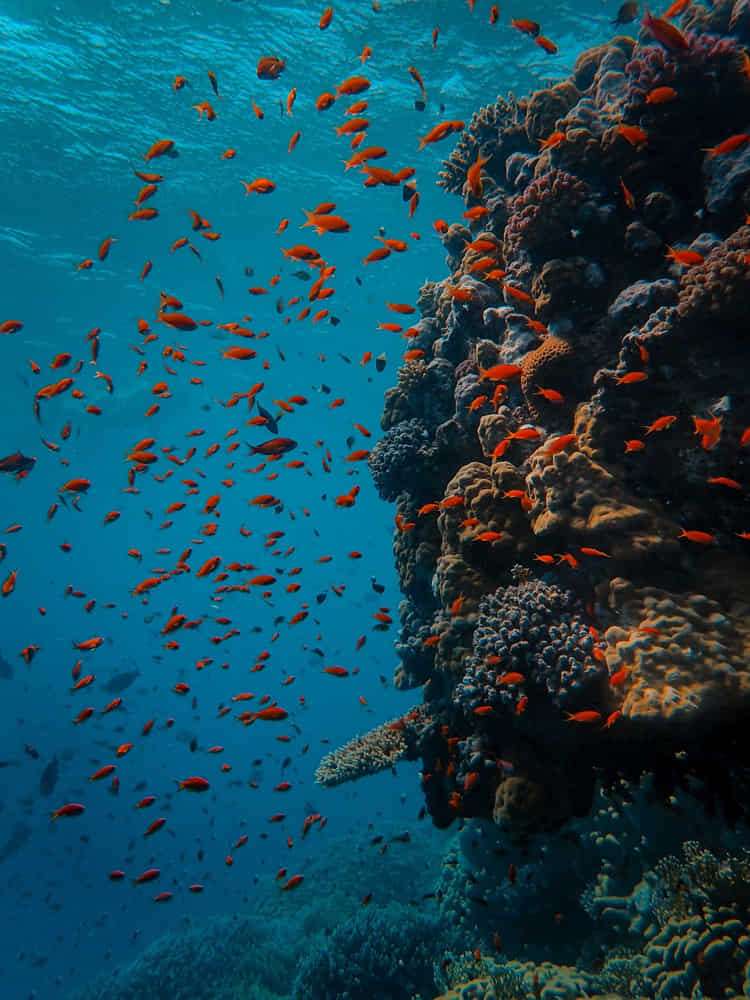
Can you imagine floating among colorful fish, exploring coral reefs, or venturing into underwater caves? Diving is a unique experience, but before you dive in, there are some basic things you need to know. Here, we explain who can dive, whether you need to know how to swim, the most common courses, and the approximate costs to help you get started on your underwater adventure with the right foot—or better yet, with the flipper!
Who can dive?
Almost anyone can do it! As long as you’re at least 10 years old (depending on the course) and in good general health, diving is for you. Some medical conditions, such as respiratory or heart problems, may require medical approval, so it’s a good idea to check with a doctor beforehand. But in general, diving is an inclusive activity where the only requirement is the desire to do it.
Do you need to know how to swim?
While you don’t need to be an Olympic swimmer, it is important to feel comfortable in the water. This is, in fact, a logical matter. Basic diving courses usually include simple tests, such as floating for a few minutes or swimming a short distance, to build the confidence and skill that will be needed underwater.
What diving course should I take?
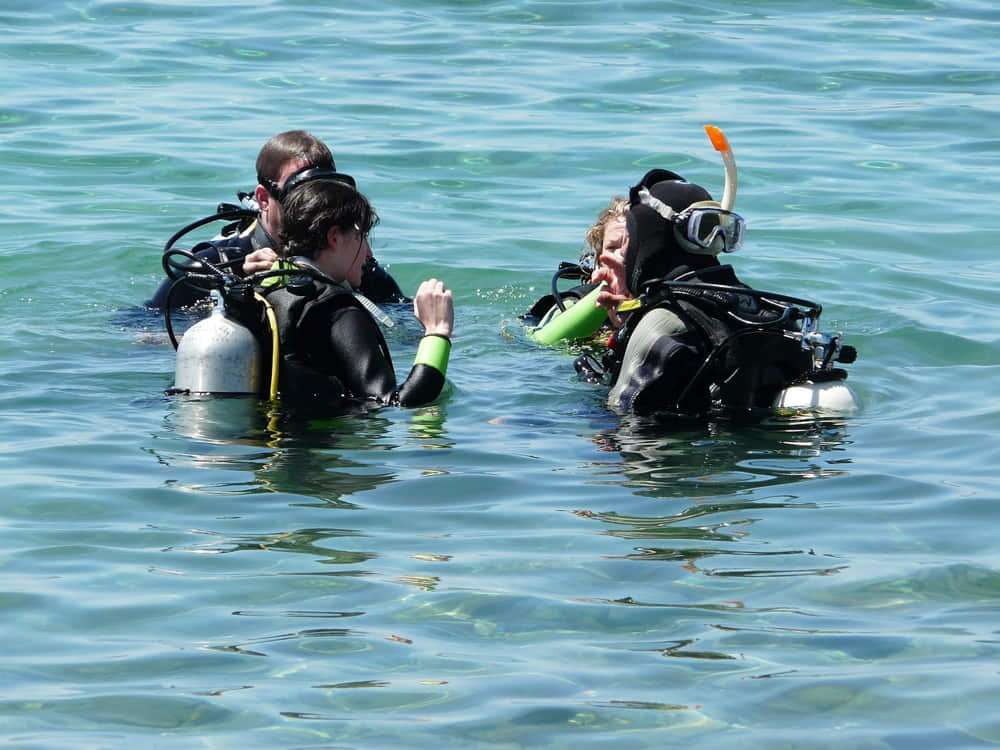
The most common course for beginners is the Open Water Diver course from PADI or SSI. With this course, you’ll be able to dive up to 18 meters (about 60 feet) deep—enough to enjoy most dive sites around the world! This course also covers the essential safety tips underwater and how to make the most of your time beneath the surface.
Is it expensive to learn to dive?
It depends on the location, but the cost usually ranges from 300 to 600 USD for basic courses like Open Water. Remember, it’s an investment in a skill you can enjoy for life.
Types of diving certifications
There are many diving certifications, but the most popular are PADI (Professional Association of Diving Instructors) and SSI (Scuba Schools International). Both have similar standards and are recognized worldwide.
How long does it take to get a diving certification?
The basic course can be completed in 3 to 4 days, although some centers, like DPM Diving, offer more flexible programs tailored to your needs. What’s included, though, are theory sessions, pool or ocean practice, and open-water dives. To finish, you’ll take a theoretical exam where you’ll need to demonstrate what you’ve learned.
Basic equipment for diving
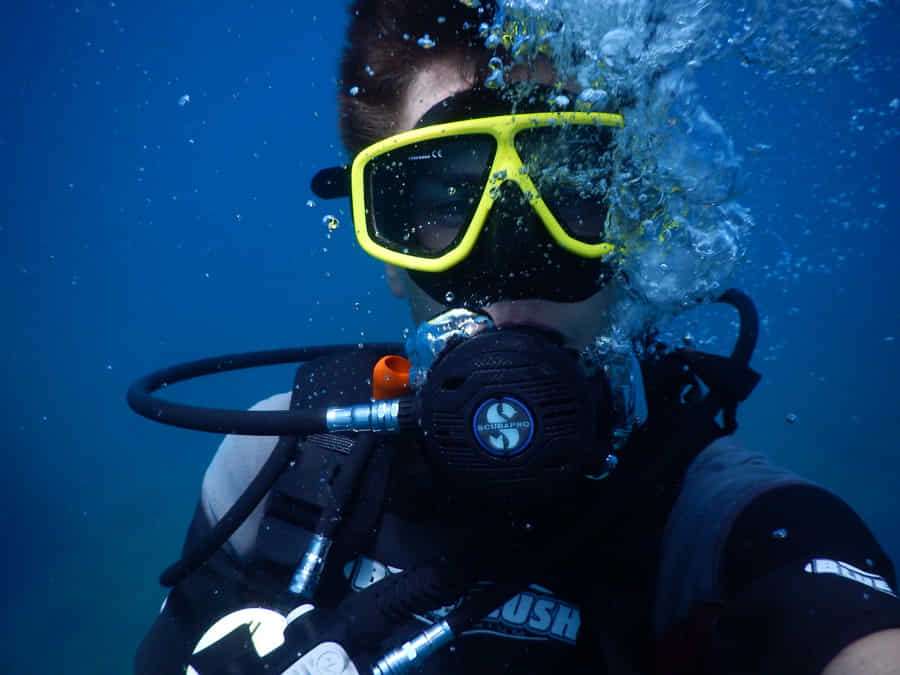
To get started, you don’t need anything at all. Most dive centers, including ours, provide the essentials, which include:
• Mask and fins: Choosing a mask that fits your face well is key to avoiding discomfort.
• Wetsuit: Protects against cold and abrasions.
• BCD (Buoyancy Control Device) and regulator: Essential tools that will be provided during the course.
At DPM Diving, with any course, we provide all the equipment in top condition, so you don’t have to worry about a thing. If you decide to dive regularly, though, it’s recommended to invest in your own gear for greater comfort.
Where to learn to dive?
The ideal location depends on your budget and preferences. However, to be honest, there are some destinations that are always a hit, such as:
- Thailand: The island of Koh Tao is the international mecca for diving, known for its calm waters and endless courses and dive schools. This is where DPM Diving started, and we’re still here. You can also find us in Phi Phi, a true paradise above and below the water.
- Spain: Canary islands Maya offers spectacular reefs and great infrastructure for courses.
- Bali: While Bali itself isn’t as famous for diving, there are two must-see spots just a short boat ride away. On one hand, there’s Nusa Penida, home to the famous Manta Point, and the Gili Islands, where you can dive with turtles in crystal-clear waters.
If you prefer something closer to home, look for local dive centers that offer experiences in nearby lakes or beaches.
Tips for beginner divers
- Relax and breathe slowly: There’s no rush! Staying calm is essential to enjoy the experience.
- Communicate your doubts: Certified instructors are there to help you; don’t be afraid to ask questions.
- Practice buoyancy: This is one of the most important skills to protect both you and the underwater environment.
- Respect the environment: Don’t touch corals or disturb marine life. Diving also means caring for the ocean.
- Don’t dive alone: Always dive with a buddy or under the supervision of an instructor.
Ready to dive into this adventure? If you found this article interesting, don’t forget to check out our diving blog for more tips and destinations.
See you underwater!

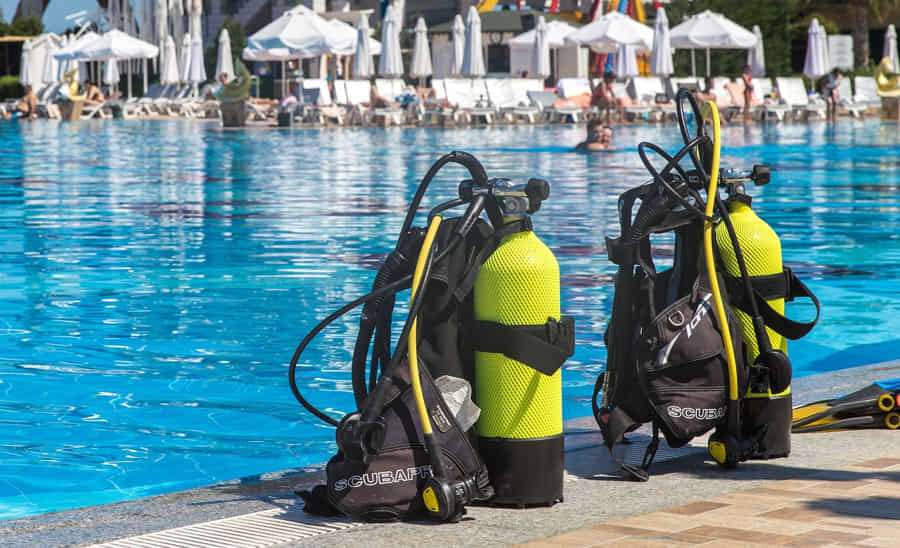

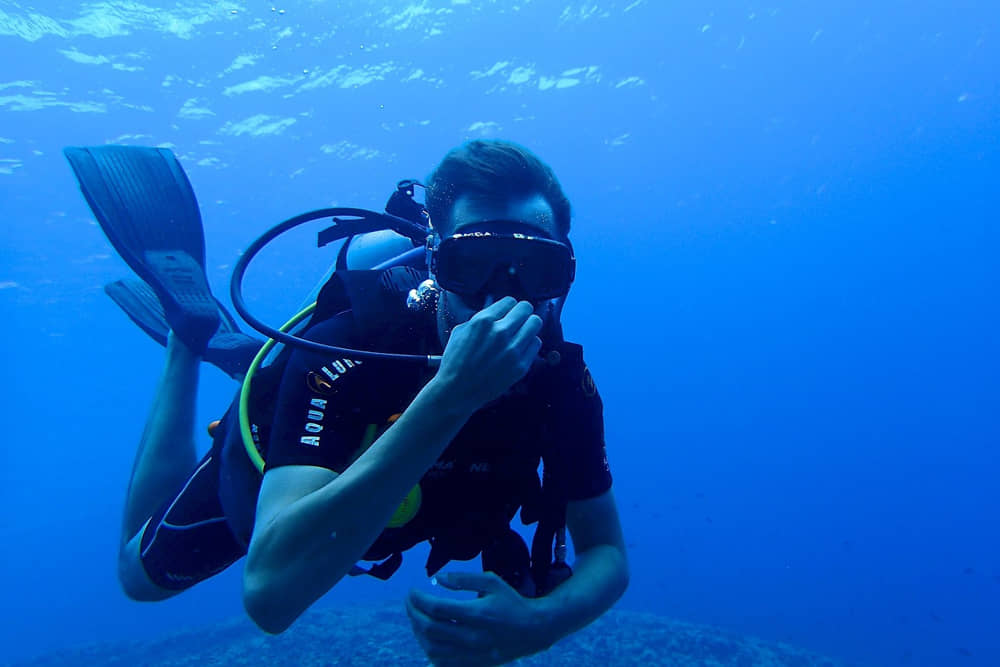
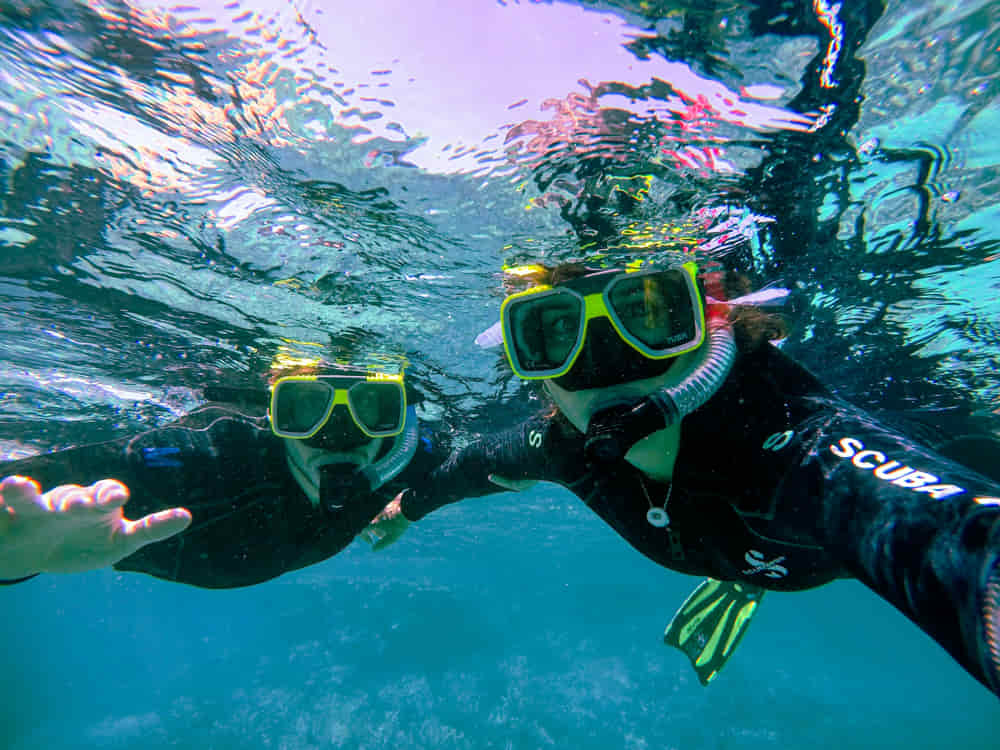
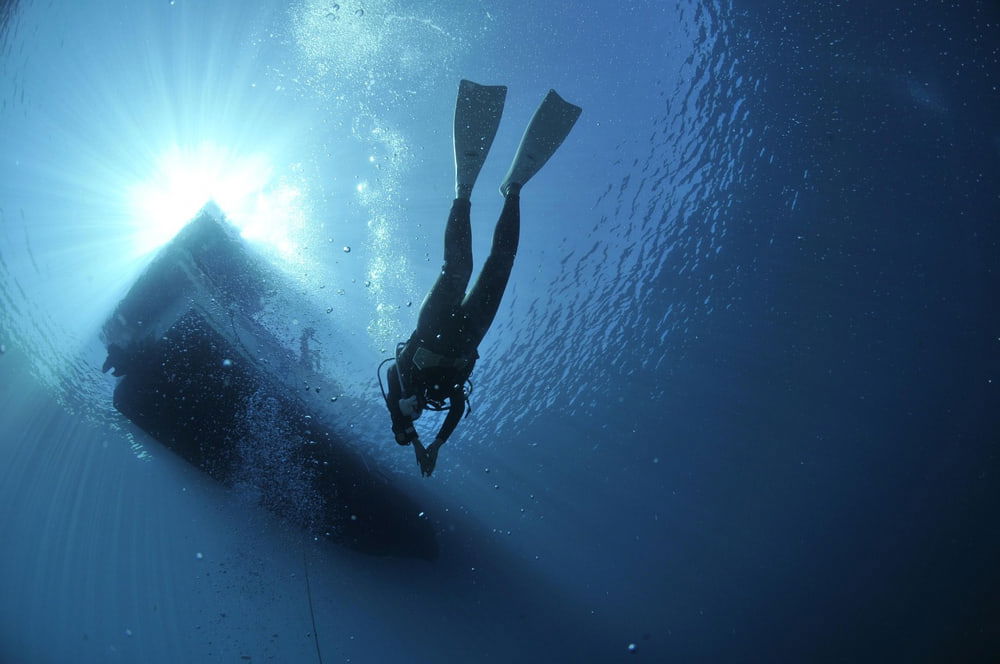

0 Comments